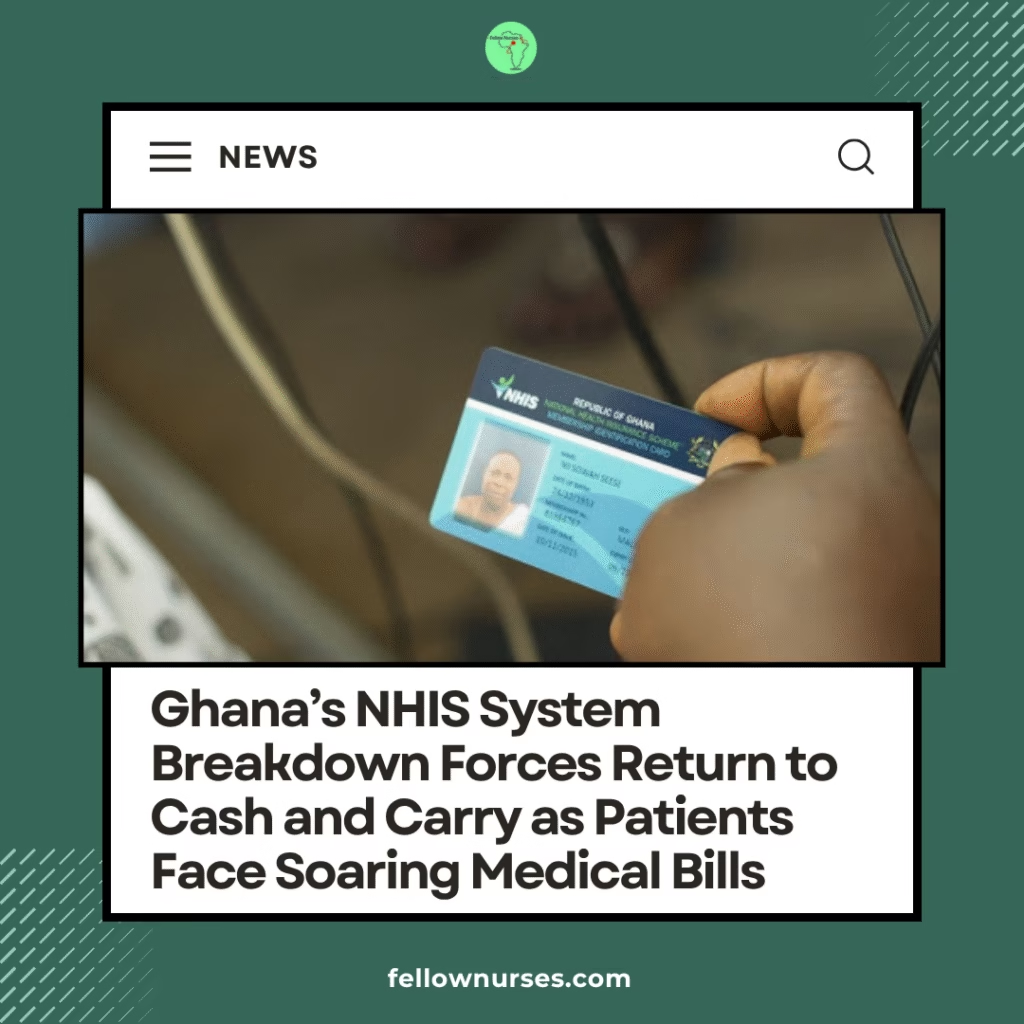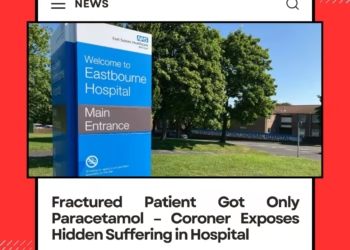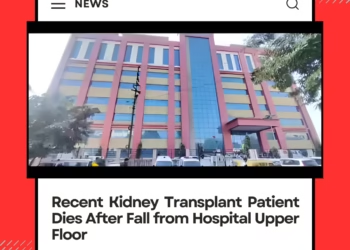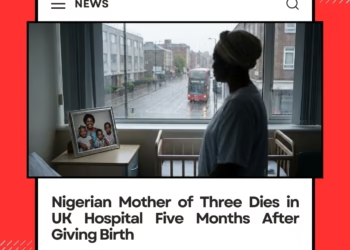
Ghana’s National Health Insurance Scheme is in crisis after a nationwide collapse of its digitised platform. The outage, now in its second week, has forced many hospitals to suspend cash-free services and demand full commercial fees from insured patients.
System failure shuts out cardholders
At Gbawe SDA Hospital, patients arrived after long journeys only to learn their NHIS cards could not be authenticated. As a result, routine consultations and essential lab tests were billed at private rates. What would normally cost GH₵18 under NHIS jumped to GH₵54. Basic laboratory tests that are usually covered were billed to patients out of pocket.
One relative, who accompanied his 75-year-old mother, said the bill for consultation and tests rose from an expected GH₵30 to more than GH₵200. Another patient described a bill of GH₵1,500 and said she expected to pay less than GH₵1,000 if NHIS was working.
NHIA acknowledges problems and pledges support
Dr. Victor Asare Bampoe, Chief Executive of the National Health Insurance Authority, confirmed some facilities are either turning away insured members or charging them upfront. He called the situation unacceptable and said the NHIA is exploring short and medium term fixes. Among the measures under consideration is deploying NHIA staff to support facilities while the system is restored.
However, the NHIA noted that the electronic health records and hospital management system is owned and managed by an independent service provider. The split in responsibilities has complicated a quick fix.
Public hospitals built with public money are not immune
Investigations across Accra reveal a worrying inconsistency. Some public hospitals continue to accept NHIS and provide broad coverage for consultation, medicines, and tests. Others that were built or heavily subsidised with public funds are requiring cash payments or only accepting private insurance.
At University Hospital, Legon, staff told a reporter that NHIS was not being accepted and quoted consultation fees of GH₵120. At the University of Ghana Medical Centre the fee was GH₵200. In contrast, Ridge Hospital and 37 Military Hospital continue to serve NHIS patients and have dedicated NHIS offices.
Funding and policy gaps feed the problem
Despite Parliament increasing NHIS funding to GH₵10 billion in 2025, experts say delayed reimbursements, partial accreditation rules, and voluntary facility registration have left gaps. Facilities can choose whether to fully integrate with NHIS. That choice, critics argue, allows some hospitals to withhold cash-free services even when the public partly funded their construction.
Civil society voices called the situation a betrayal of trust. Harriet Nuamah Agyemang of SEND Ghana said: “Ghanaians pay through VAT and levies so when the NHIS card fails at the door, people are paying twice.”
What this means for patients
For millions of active NHIS members, the system breakdown means sudden, often unaffordable medical bills. For low-income families the impact is immediate. Patients delay care. Others face catastrophic health spending. Health rights advocates warn the outage could erode public confidence in the scheme.
Way forward
Officials say restoring the digital platform is a priority. Meanwhile the NHIA, the Ministry of Health and hospital administrators must coordinate clear interim protocols. Short term steps should include a transparent process for verifying membership during outages, emergency cash-protection measures for vulnerable patients, and fast-tracked technical support for the national system.
Longer term, experts call for clearer mandates on facility accreditation and stronger safeguards to ensure hospitals built with public funds remain accessible to NHIS cardholders.
Fellow Nurses Africa is the independent voice of African nursing. We educate, inform and support nurses across Africa.










